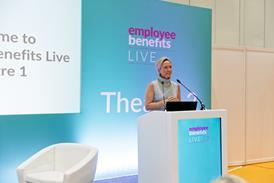
The government has extended its Flexible Working Ambassadors programme for a further year to enable teachers to plan lessons from home, job-share or work flexible hours.
Latest figures from the Department for Education (DfE) showed that 46% of teachers had a flexible-working arrangement in place in 2024, up six percentage points since 2022.
Nearly half (47%) of teaching staff who said they were considering leaving state education cited a lack of flexible-working opportunities as one of the reasons.
Research also found 82% of school leaders offering flexible working agreed that it had helped to retain teachers who might otherwise leave. And 62% of parents said that children being taught by two teachers in a job-share arrangement had no impact, or a positive impact, on their child.
Schools minister Catherine McKinnell said: “We highly value our brilliant teachers, and they deserve working conditions that recognise their professionalism and support their wellbeing.
“I’ve seen first-hand how working flexibly can transform teachers’ lives for the better and drive high and rising high standards for their pupils. Our Flexible Working Ambassadors programme will help make sure we deliver on our pledge to recruit and retain more teachers.”
The government plans to recruit an additional 6,500 expert teachers over the course of this Parliament, and it is offering tax-free incentives and professional development to attract and retain teachers and improve workloads and wellbeing.
The flexible-working support programme for multi-academy trusts and schools (FWAMS), which is run by Capita and funded by the DfE, offers free advice and practical support to school leaders, including designing a flexible working policy, flexible hiring, and overcoming common challenges such as timetabling and budgeting.
Bespoke support is available to multi-academy trusts, mainstream primary and secondary schools, alternative provision settings and pupil referral units, and high-disadvantage schools, where a large number of children are eligible for the pupil premium.
Rebecca Cramer, chief executive of Reach Schools, an academy trust in West London, said: “Flexible working is imperative to keep great teachers in the classroom. Through the FWAMS programme, we have supported schools to employ a culture of openness and communication around how teachers work.
“Schools that think innovatively and embrace change around teachers’ work arrangements enhance teacher wellbeing and productivity and, ultimately, have a positive impact on the young people in our classrooms.”
Sarah Corrigan, director of humanities and social sciences at Reach Academy Feltham, added: “Flexible working has allowed me to stay in the classroom doing something that I love. Without the option of part-time work and some full-time flex, I would have struggled with my work-life balance and would have left the teaching profession.
“Reach has supported me to return from maternity leave on a part-time basis. Also, like all other teachers in our school, I have been encouraged to take advantage of flex to ensure that I don’t miss the big events in my and my family’s lives by using term-time annual leave and compressed hours.”











